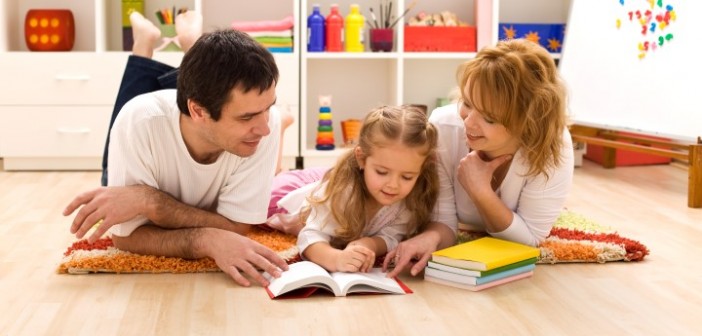 Home reading is a part of every school age child’s family’s routine. Love it or hate it, practise makes perfect so it really can’t be avoided. Ideally, Home Reading is an enjoyable time where you and your child can snuggle up and share a story, information or a laugh but all too often it ends in tears (not just the child’s). Home Reading should be an opportunity for your child to ‘show off’ and involve you in his/her education. Here are some handy hints to avoid the feeling of needing your army fatigues to prepare for battle every time you open the homework folder and discover a Home Reading book.
Home reading is a part of every school age child’s family’s routine. Love it or hate it, practise makes perfect so it really can’t be avoided. Ideally, Home Reading is an enjoyable time where you and your child can snuggle up and share a story, information or a laugh but all too often it ends in tears (not just the child’s). Home Reading should be an opportunity for your child to ‘show off’ and involve you in his/her education. Here are some handy hints to avoid the feeling of needing your army fatigues to prepare for battle every time you open the homework folder and discover a Home Reading book.
Firstly it is probably pointless to expect your child (especially a young child) to be very alert and willing to concentrate on reading a new book just before bedtime. So find a suitable time and a quiet place away from distractions (especially TV).
1) The first thing you should do is look at the cover and ask, “What type of book do you think it is?” “Is it a story, an information text etc?” Then read the title and ask, “What do you think this book is about?”
2) I then suggest looking through the pages and talk about what is happening. Also use this opportunity to scan the text and use any words that you don’t think will be easily recognisable eg “Look, that car is in a garage.”
3) Then begin reading. Please don’t correct every mistake (nobody likes that), especially on the first go. If a substituted word changes the meaning then stop and say, “Do you think that sounds right?” Does the car look like it’s in a house? Always refer to the pictures in early level texts- that’s what they are there for.
4) While ‘sounding out’ is one reading strategy, it is one of many and should often not be the first one to suggest using for an unknown word. Many sight words are not phonetic, instead just focus on the first sound and ask “What would make sense here?”
5) Reading the book to your child first, using fluency and expression is also helpful, as is taking it in turns to read a page each – particularly if you can’t avoid reading while your child is tired and uncooperative. Fluency and expression are important for comprehension so reading along with your child, demonstrating these is also a good idea. They will pick it up from you.
6) When the book is finished ask him/her to retell the story in his/her own words. That way you will know if the text has been understood.
If books that are too hard (more than 5 mistakes) are frequently coming home, speak to your child’s teacher about adjusting the difficulty.
As a teacher and a parent of a beginning reader I am all too aware that Home Reading books are really not that interesting so make a time to visit your local library and let your child go wild. Children (and adults) prefer to engage in something they are interested in.
Written By School Mum and Teach Candie

